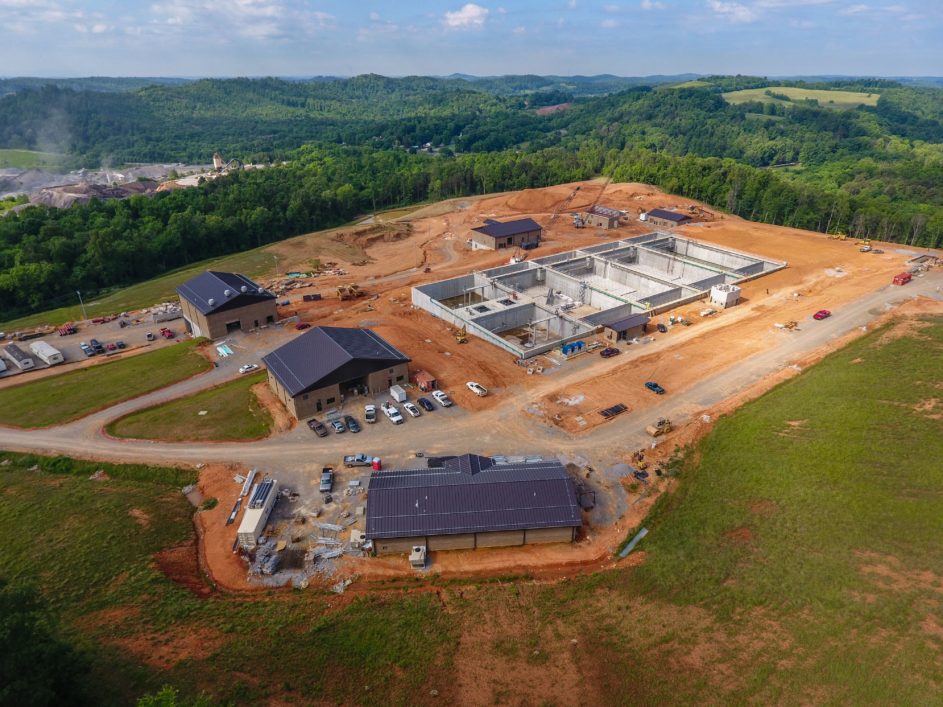An idea floated as far back as 1993 is about to become a reality; West Knox Utility District anticipates commissioning a new six-million-gallon waste treatment plant around the middle of October. Located roughly at the intersection of Buttermilk and Hickory Creek roads, the plant will replace the four-million-gallon facility currently in operation at the Westbridge Business Park on Hardin Valley Road.
The upgrade is timely. Northwest Knox County has been the fastest-growing sector in the county for the past 27 years according to data compiled by the Knoxville-Knox County Planning Commission. The sector’s 3.9 percent growth rate is double or triple most other areas of the county.
As explained by plant general manager Drexel Heidel and assistant general manager Wayne Hastings, four distinct projects have to be completed to bring the new plant online.
- Constructing the plant itself. Price tag: $43 million.
- Laying 7 miles of new pipe for $11 million.
- Building a pump station for $10 million.
- Constructing the outfall line from the plant to the Clinch River at a cost of $8 million.
Add those figures and you have an approximately $72 million capital project.
Keeping our waterways free of potentially harmful waste products is expensive, and a utility district’s ratepayers bear the burden. Heidel said no federal or state money is involved. Hastings said rates have been increased in “small bites” for some time as work has been completed on the facility. Third-party rate studies are done regularly.
The plant has been under construction for three years, but it took four years to get a permit. TDEC (the Tennessee Department of Environment and Conservation) is the regulating authority, although Heidel said he “wouldn’t be surprised” to find that TVA played a role in the permitting process.
Computers have transformed industries across the board in recent years, and waste treatment technology is no exception. With more routines automated, a crew of 8-10 technicians can handle the workload, but they must be better trained than ever. With 30-50 percent of certified waste treatment plant operators moving steadily toward retirement, a crisis looms.
A 30 percent pass rate on the certification exam coupled with the impending loss of experienced operators is a call for action, so Heidel is “very excited” about Pellissippi State’s new degree program in water quality technology. (Learn more from Lesli Bales-Sherrod’s story here.)
Even the most advanced computer programs can’t escape the physical requirements for treating wastewater. Engineering, chemistry and biology dictate treatment methods.
The utility completed a new water plant three years ago. With the facilities for both wastewater treatment and potable water upgraded, there is room – for now – for continued growth in the northwest sector of the county.
Larry Van Guilder is the Business/Government Editor of KnoxTNToday. Write to him at lvg@knoxtntoday.com.

